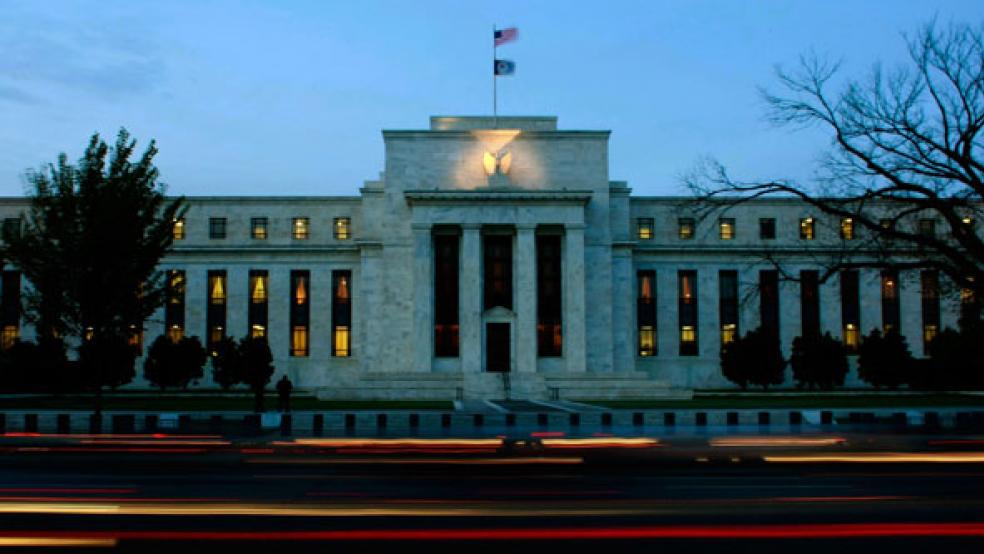The buzz on Wall Street suggests that the Fed is about to embark on another round of quantitative easing, also known as QE3.
While the Fed previously had said that “it will act as needed,” the latest statement of the Federal Open Market Committee, released today, includes these lines:
“The Committee discussed the range of policy tools available to promote a stronger economic recovery in a context of price stability. It will continue to assess the economic outlook in light of incoming information and is prepared to employ these tools as appropriate.”
“The important buzzword here is ‘prepared,’” UniCredit Chief U.S. Economist Harm Bandholz writes in a note to clients. He shows how the Fed used the same language before it embarked on a second round of quantitative easing. “The Fed is therefore getting close to another round of monetary easing,” Bandholz suggests—though Fed Chairman Ben Bernanke has laid out other options as well. As Goldman Sachs Chief U.S. Economist Jan Hatzius describes them, those include “a commitment to keep the balance sheet large, a gradual shift of the securities portfolio into longer maturities, or a cut in the interest rate on excess reserves from 25 basis points (bp) to zero.”
Yet Hatzius believes a third round of easing is more likely than not. In a note to clients titled “QE3 Now Our Base Case,” Hatzius writes: “We now see a greater-than-even chance that the FOMC will resume quantitative easing later this year or in early 2012.”
Bernanke has largely transformed the idea of Fedspeak and placed an emphasis on transparency, as Tuesday’s FMOC report illustrates. The committee took the unprecedented step of pledging to keep the federal funds rate close to zero “at least through mid-2013,” swapping out the vague language of “an extended period” that it has routinely used in the past and specifying a date for the first time ever.
But there’s a limit to Fed transparency, and the probability of QE3 depends on whether the Street is correctly parsing the language of the FOMC statement. Still, Fedspeak, the intentionally vague language once described by former central bank chief Alan Greenspan as "purposeful obfuscation" and "destructive syntax," is a good deal easier to translate these days.





